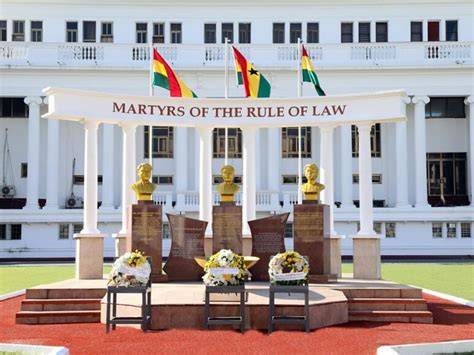The Supreme Court of Ghana has unanimously dismissed a petition challenging the constitutionality of the Human Sexual Rights and Family Values Bill, commonly known as the anti-gay bill. The seven-member panel, chaired by Justice Lovelace Avril Johnson, ruled that the legislative process surrounding the bill adhered to the constitutional requirements, effectively rejecting the petition filed by media practitioner and lawyer Richard Dela Sky.
Richard Dela Sky had sought a declaration from the court stating that the bill, which has been a source of intense national debate, was null and void. His petition argued that the legislative process was flawed and that the bill was unconstitutional. However, the Supreme Court justices disagreed, affirming that the process followed in Parliament for the proposed anti-LGBTQI legislation was in accordance with the law.
The Human Sexual Rights and Family Values Bill, which is currently under parliamentary consideration, seeks to criminalize activities related to the advocacy of lesbian, gay, bisexual, transgender, queer, and intersex (LGBTQI) rights. If enacted, it would impose penalties on individuals involved in promoting or funding LGBTQI initiatives, as well as those providing indirect support. The bill has sparked widespread debate in Ghana, with supporters arguing that it is essential for preserving the country’s cultural and family values. On the other hand, critics condemn the bill, claiming that it infringes on fundamental human rights, including the freedoms of expression, association, and individual privacy.
In addition to Richard Dela Sky's petition, another legal challenge was filed by Amanda Odoi, an advocate for equality and inclusion. Odoi and her co-plaintiffs argued that Parliament failed to meet the constitutional quorum requirements outlined in Articles 102 and 104 of the Ghanaian Constitution during the legislative proceedings of the bill. They contended that this procedural failure rendered the bill’s passage unconstitutional and invalid.
However, the Supreme Court emphasized that the bill had not yet been enacted into law, and until it receives presidential assent, it remains a legislative proposal. Justice Lovelace Johnson, in delivering the court's ruling, clarified that a bill in its current form does not constitute an enforceable law, and therefore, it is not subject to judicial review at this stage.
The dismissal of these petitions leaves the bill’s legislative journey ongoing, with further legal and parliamentary steps required before it can become law. The case marks a significant moment in the ongoing national discourse surrounding LGBTQI rights and the broader debate about constitutional rights in Ghana.




No comments yet
Be the first to share your thoughts!